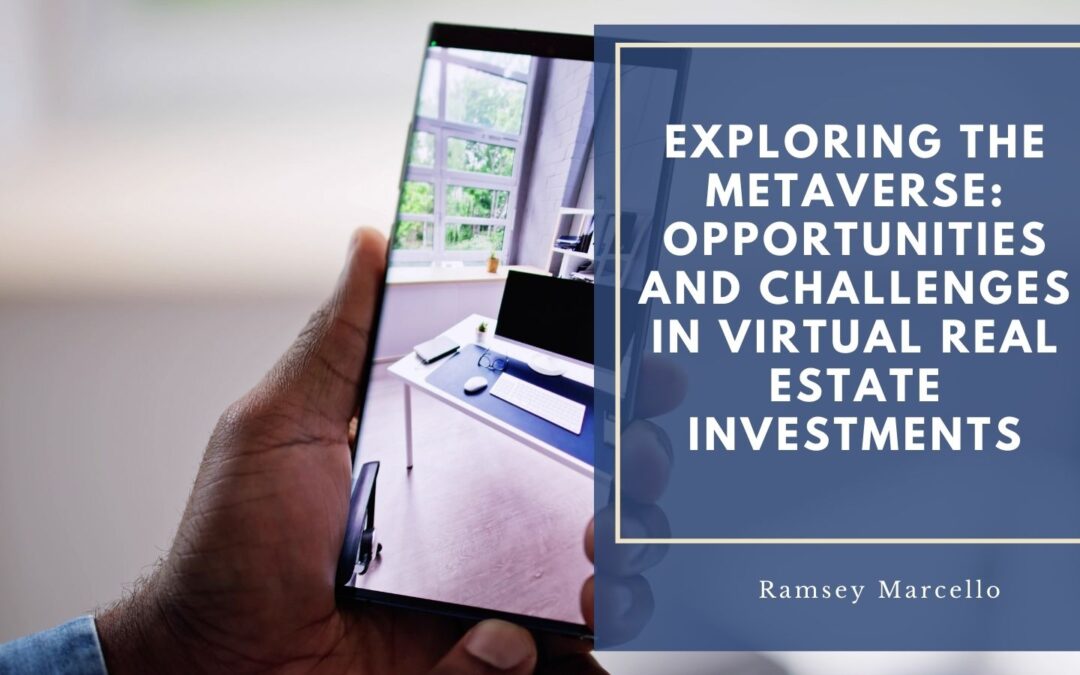The rapid expansion of the metaverse is revolutionizing various industries, including real estate. Virtual real estate—digital land and properties within metaverse platforms—has become a lucrative investment opportunity. However, as with any emerging market, investing in virtual real estate presents both exciting opportunities and significant challenges.
Opportunities in Virtual Real Estate
1. High-Growth Potential
As the metaverse continues to evolve, digital land is becoming a highly sought-after asset. Platforms such as Decentraland, The Sandbox, and Cryptovoxels have seen significant appreciation in virtual property values. Early adopters can benefit from the increasing demand for digital spaces.
2. Revenue-Generating Possibilities
Virtual real estate can be monetized in various ways. Investors can develop digital properties for advertising, host events, lease virtual storefronts, or even create immersive gaming experiences. Major brands are already establishing a presence in the metaverse, signaling strong commercial potential.
3. Accessibility and Global Reach
Unlike physical real estate, virtual properties do not require geographical proximity. Investors worldwide can buy, sell, and develop land without traditional barriers such as zoning laws or physical infrastructure limitations.
4. Integration with Blockchain and NFTs
Most virtual real estate transactions are conducted using blockchain technology and non-fungible tokens (NFTs), ensuring transparency, security, and ownership verification. This decentralization reduces fraud risks and enhances liquidity in the digital real estate market.
Challenges in Virtual Real Estate Investments
1. Market Volatility and Speculation
The virtual real estate market is highly speculative. Prices can fluctuate drastically based on hype, technological advancements, and platform popularity. Unlike physical real estate, digital land lacks intrinsic value, making it susceptible to rapid depreciation.
2. Platform Dependency
Virtual properties exist within specific metaverse platforms. If a platform loses relevance, shuts down, or fails to attract users, digital real estate investments could become worthless. Investors must carefully assess the long-term viability of the platforms they invest in.
3. Regulatory Uncertainty
The legal framework for virtual real estate is still in its infancy. Governments and financial regulators are working to address concerns related to taxation, intellectual property rights, and digital asset ownership. A lack of standardized regulations can create risks for investors.
4. Security and Fraud Risks
Despite blockchain’s security features, virtual real estate investments are not immune to cyber threats. Hacking, phishing scams, and fraudulent transactions pose risks to digital property owners. Investors must take precautions to secure their digital assets and conduct thorough due diligence.
The Future of Virtual Real Estate
As the metaverse grows, virtual real estate will continue to evolve, offering new investment opportunities and challenges. Technological advancements in artificial intelligence, augmented reality, and virtual reality could enhance the value of digital properties. However, investors must remain vigilant, staying informed about market trends, platform developments, and regulatory changes.
Virtual real estate is an exciting frontier with the potential for substantial returns. However, it requires a strategic approach, risk assessment, and a deep understanding of the digital ecosystem. As with any investment, thorough research and diversification remain key to success in this emerging market.
